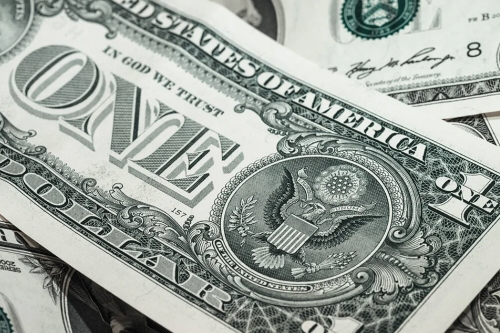Out of Joint
脱节
What burger prices tell you about currency wars
从汉堡包价格看货币之战
Despite a recent bout of weakness, the dollar still looks strong. Consider the Big Mac index, our lighthearted measure of currency valuation. Of the currencies of the 20 trading partners studied by America’s Treasury, our measure suggests that all have gained relative to the greenback since July, but that all apart from the Swiss franc are still cheap. That gives the incoming Biden administration, which has promised to take “aggressive trade-enforcement actions” against currency manipulators, lots to chew on.
尽管美元近期走软,但看起来依然相当坚挺。这一点可以参考我们衡量货币汇率的趣味指标——巨无霸指数。该指标显示,美国财政部关注的20个贸易伙伴的货币自7月以来全部对美元升值,但除了瑞士法郎之外,这些货币的汇率仍然偏低。这给了刚上台的拜登政府很多值得咀嚼之处,他们已经承诺要对货币操纵国采取“激进的贸易执法行动”。
Our burger-based index is premised on the idea that prices should adjust over the long run, so that the same basket of tradable goods costs the same everywhere. Converting prices into dollars at prevailing exchange rates lets you judge whether a currency is too cheap or too dear. To avoid the problem that people buy different things in different places, we compare the price of just one good: the McDonald’s Big Mac. The burgers are not exactly the same across countries – India’s Maharaja Mac, for instance, does not contain beef – but they are consistent enough. A burger in Thailand costs 25% less than in America when its price is converted to dollars at prevailing exchange rates, for example, suggesting that the Thai baht is undervalued.
我们的巨无霸指数基于这样一个前提:价格会在长期内调整,使得同一篮子的可交易商品在各地区的售价大致相同。将价格按现行汇率换算成美元,就可以判断某种货币的汇率是偏低还是偏高。由于世界各地的人们购买的东西各不相同,我们就只比较一种商品的价格:麦当劳的巨无霸。这种汉堡在不同国家也不全然相同——比如说印度的麦王公汉堡里头就没有牛肉,但已经足够一致而可用于比较。例如,按现行汇率将泰铢换算成美元之后,一个巨无霸在泰国的价格要比在美国便宜25%,这就表明泰铢被低估了。

As wages tend to be lower in poor countries, though, Big Macs there may be cheaper. So we also calculate an index that adjusts for GDP per person. On this basis the Thai baht is no longer cheap relative to the dollar. The number of trading partners with undervalued currencies falls to 11.
不过,由于贫穷国家的工资往往更低,那里的巨无霸也可能卖得相对便宜些。因此,我们还根据人均GDP数字做调整,计算出一个指数。以此为基础比较,泰铢相对于美元就不再便宜了。货币被低估的贸易伙伴数量也减少到了11个。
Is the Big Mac index consistent with recent American policy on currency manipulators? The two do not assess quite the same things. Our index records outcomes; policymakers, by contrast, try to punish countries that intentionally depress their currencies. America’s Commerce Department says it looks unkindly on currencies only if they are cheap because of government action. The Treasury is also concerned with manipulation, not undervaluation; it looks for evidence of intervention, as well as persistent trade imbalances.
巨无霸指数是否与美国近期针对汇率操纵国的政策相一致?两者评估的对象并不完全相同。我们的指数记录的是结果,而政策制定者的出发点是要惩罚那些蓄意压低本币的国家。美国商务部表示,只有当某国货币因政府行为而贬值时才会对其采取严厉态度。美国财政部担心的同样是操纵汇率而非低估汇率,它寻找干预的证据,关注持续的贸易不平衡。
Still, given currency gyrations over the past year, the Big Mac index could act as a cross-check on American policy. When covid-19 first spread, investors fled to the dollar, only for the trend to reverse after the Federal Reserve flooded markets with liquidity. Swings in the Mexican peso meant that, according to our index, it went from being 53% undervalued against the dollar to 61% undervalued over the first half of 2020, before the move was unwound. By contrast, the Vietnamese dong remained oddly stable against the dollar in the first half of last year.
尽管如此,考虑到过去一年里的汇率波动,可以用巨无霸指数来交叉校验美国的政策。当新冠疫情刚开始蔓延时,投资者纷纷涌向美元,等到美联储向市场注入大量流动性后,趋势开始逆转。根据我们的指数,墨西哥比索的汇率先是在2020年上半年从对美元低估53%扩大至低估61%,然后又变回去。相比之下,越南盾对美元汇率却在去年上半年奇怪地保持稳定。
Consistent with this, Mexico has escaped penalties from the Treasury and the Commerce Departments; Vietnam has not. On December 16th the Treasury labelled it a currency manipulator, citing its huge goods surplus with America and its intervention in foreign-exchange markets. The Commerce Department has whacked tariffs on imports of tyres from Vietnam, arguing that a depressed dong acted as a subsidy for producers.
与此相一致的是,墨西哥避过了美国财政部和商务部的处罚,而越南没有。12月16日,财政部将越南列为货币操纵国,理据是它对美国的巨额商品贸易顺差以及对外汇市场的干预。商务部称,被压低的越南盾是对生产商的变相补贴,并以此为由对从越南进口的轮胎加征关税。
On other fronts, though, America’s recent actions are at odds with our index. The Treasury also branded Switzerland a manipulator, based partly on its currency intervention of around $100bn (14% of GDP) in the year to June. Both versions of our index, though, suggest that the Swiss franc is overvalued against the dollar.
然而在其他方面,美国最近的行动与我们的指数并不一致。财政部将瑞士也列为汇率操纵国,原因之一是截至去年6月的一年里瑞士实施了约1000亿美元(占GDP的14%)的货币干预。但我们两个版本的指数都显示瑞士法郎对美元是高估了。
英文、中文版本下载:http://www.yingyushijie.com/shop/source/detail/id/2597.html








